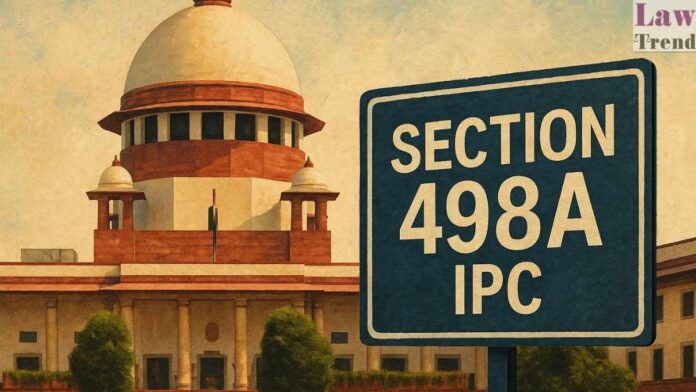In a significant judgment delivered by Justice Pamidighantam Sri Narasimha and Justice Joymalya Bagchi, the Supreme Court of India set aside the Karnataka High Court’s order quashing criminal proceedings against a husband accused under Sections 498A, 324, 355, 504, 506 read with Section 149 of the Indian Penal Code. The Court held that when allegations
To Read More Please Subscribe to VIP Membership for Unlimited Access to All the Articles, Download Available Copies of Judgments/Order, Acess to Central/State Bare Acts, Advertisement Free Content, Access to More than 4000 Legal Drafts( Readymade Editable Formats of Suits, Petitions, Writs, Legal Notices, Divorce Petitions, 138 Notices, Bail Applications etc.) in Hindi and English.




